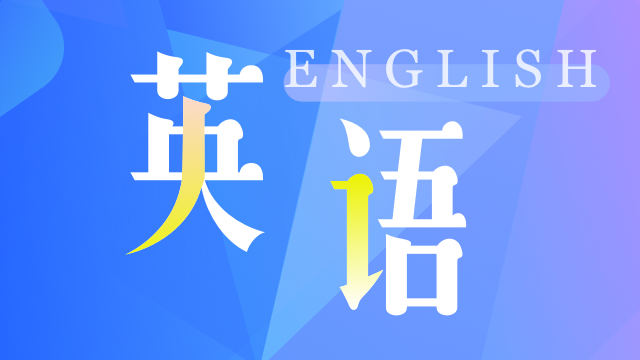每周词汇精选:ENJOY
作者:LEARN AMERICAN ENGLISH ONLINE
来源:看东西
2015-08-26 11:47
The word “enjoy” is a verb similar to the verb “like.”
动词“enjoy”与“like”(喜欢)意思相近。
Jessica enjoys dancing.
杰西卡喜欢跳舞。
Bob enjoys his new job.
鲍勃喜欢他的新工作。
The children enjoy their new Sony Playstation.
孩子们喜欢他们新的索尼游戏机。
Chris enjoyed the coffee at that cafe.
克里斯喜欢那家咖啡店里的咖啡。
He enjoyed having coffee with his friends.
他喜欢和朋友们一起喝咖啡。
I enjoy listening to music.
我喜欢听音乐。
What do you enjoy doing?
你喜欢干什么?
There are two very important things to take note of for the verb “enjoy”. First, this is a transitive verb, so it requires an object of some kind. Bob enjoys his new job. The word “job” is an object in that sentence. Second, the verb “enjoy” is often followed by a gerund. You can’t use an infinitive after “enjoy.”
关于“enjoy”的用法,有两点需要特别注意。第一,这是一个及物动词,使用时后面要接宾语。比如“Bob enjoys his new job”这个句子中,“job”(工作)就是宾语。第二,这个词后面通常跟动名词(-ing),不能使用不定式(to do)。
I enjoy gardening.
我喜欢园艺。
I enjoy to garden. (No!)(这是错误用法哦!)
This is one way in which “enjoy” is different from the verb “like.” After “like,” the use of either a gerund of an infinitive is okay:
这是“enjoy”和“like”的其中一点不同之处。“like”后面既可以跟动名词,又可以跟不定式。
I like gardening. I like to garden.
我喜欢园艺。
Here are some other common ways in which “enjoy” is used:
下面是“enjoy”的一些其他常见用法:
They’re enjoying themselves.
他们玩得很高兴。
(“Enjoy”is often used with a reflexive pronoun.)
(“Enjoy”常与反身代词连用。)
Are you enjoying yourself?
你玩得开心吗?
(Are you having a good time?)
(你玩得开心吗?)
He enjoys being with other people.
他喜欢和别人待在一起。
(The word “being”is a gerund, and it’s often used after “enjoy”.)
(“being”是动名词,常与“enjoy”连用。)
She enjoys being a student.
她喜欢做个学生。
Enjoy your trip!
享受你的旅程!
(This is a command. “Enjoy”is often used in the imperative form.)
(这是一个命令句。“enjoy”常用在祈使语中。)
Enjoy!*
享受吧!*
You can add “able” as a suffix to “enjoy” to make the adjective, “enjoyable.”
“enjoy”后面加后缀“able”就构成了形容词“enjoyable”,意为“令人愉快的”。
The trip was enjoyable.
这次旅途令人十分愉快。
It was an enjoyable experience.
这是一次令人愉快的经历。
She had an enjoyable evening with her friends.
她和朋友们度过了一个愉快的夜晚。
*Note: Sometimes “enjoy” is used as a one-word imperative sentence. The object here is implied and dependent on the situation. You often hear “enjoy” used this way by people who work in the hospitality industry, mainly wait staff and hotel workers. Enjoy!
*注意:“enjoy”有时候会被单独作为一个祈使句使用。这里暗含的宾语由情境决定。服务行业的从业人员经常这样使用“enjoy”,主要是服务员和宾馆工作人员。享受吧!
声明:本文系看东西授权沪江英语独家转载,转载请注明出处。全文只代表作者个人观点,仅供参考。如有不妥之处,欢迎指正。











